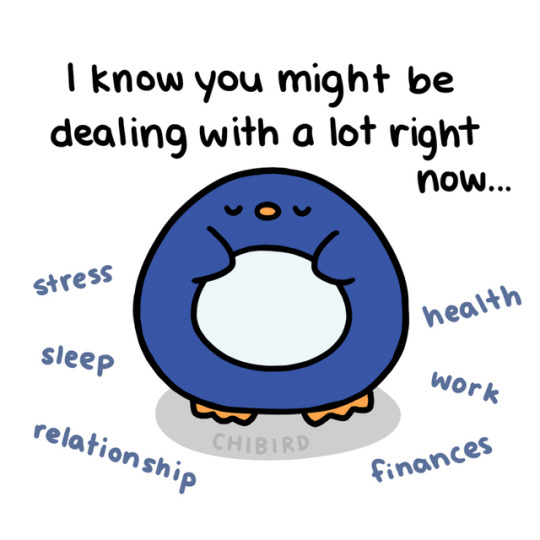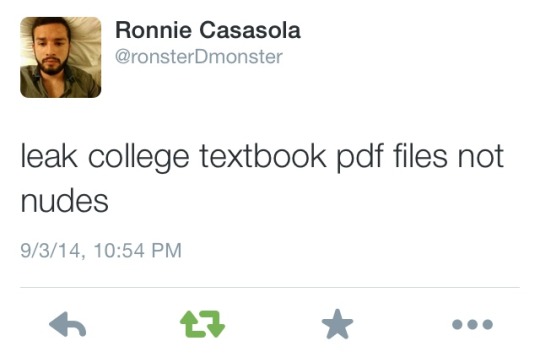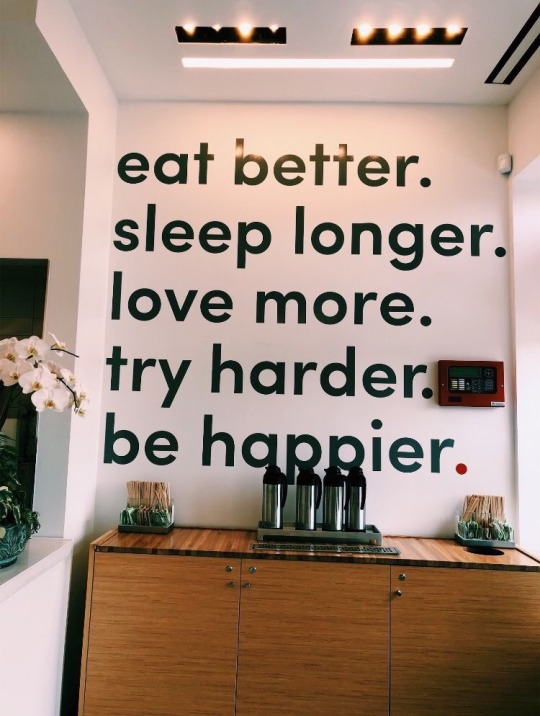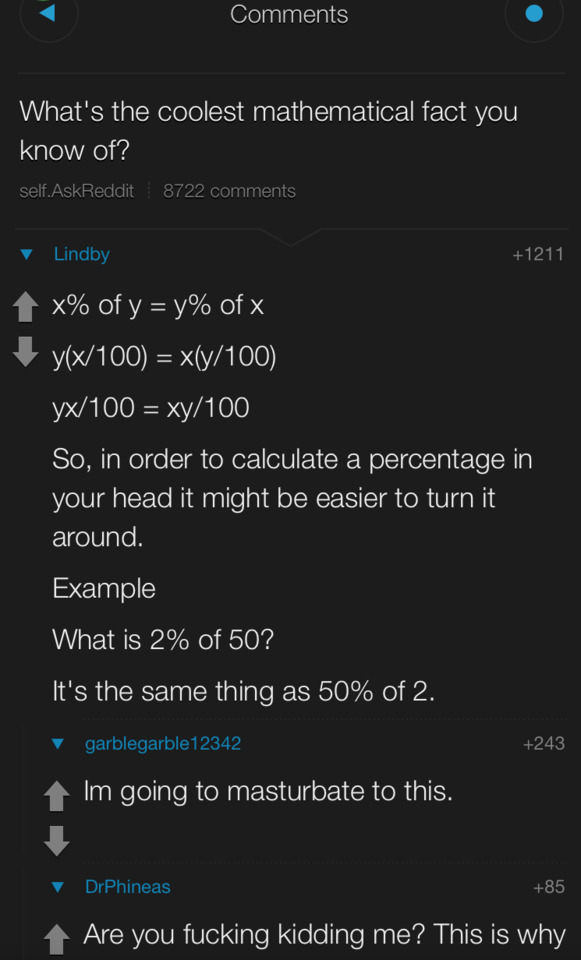Jay : She/Her : 1998 : Queer : Biology Student, part-time Tutor : Faculty of Science, Mahidol. I like coffee, tea, and respectful companions. My hobbies are running, reading, writing, and drawing.
Don't wanna be here? Send us removal request.
Link
Free open course on entomology focusing on human-insect interactions. I think that this may be of interest to ya’ll since it’s meant for everyone who loves bugs! And it’s FREE.
12K notes
·
View notes
Text
This needs to be said.
I believe it is important to address the other side of studyblr; we all talk about how important mental health is, and should be, in this community. But what we don’t talk about enough is the fact that it’s more clique than anything. By which I mean that certain studyblrs are so big they can seem unreachable; and that can be factored into another issue, the desire to have enough likes and reblogs; we have to have the perfect notes, or there won’t be any other type of notes, if you catch my drift. It’s stigmatic, it’s unfair; some small blogs rely on reblogs from bigger blogs, some rely on posting consistently (or constantly), but the fact remains.
We must change the aesthetic, once and for all, to include the smaller blogs, the dark blogs, the ones that aren’t as actively; it’s a community, not a clique of who has the most stationary or the most followers. Those who have the certain notes that are so admired are wonderful; but not all of us have that time to put into it, and we work just as hard at our academics, at becoming the person we would like to be, as they do.
Studyblr community, love yourselves, even if you don’t have the notes; or the followers. There’s no use beating yourself up about it. We can’t all be big, but what we can do is be proud of our own accomplishments and how we strive towards our own goals. Who cares if your notes don’t get that many reblogs? You made it, and you worked hard on it, and that should be enough.
895 notes
·
View notes
Text
University Tips:
Keep a planner
Keep a calendar
Look at them often
Check emails often
Look over the syllabus for each class before and after the class, or just on the weekend and mark assignments and tests in your planner/calendar
Sit in the front row of class. You’ll pay more attention and your profs will remember your face
Never miss class
Visit your professors’ office hours. Monthly [if not weekly]. No matter how scary they might seem, they are on your side and want you to succeed.
Do readings and such before class. Review your notes before and after each class.
Have a dedicated study time and place. Use it only for studying and have everything you need with you. Turn off your phone and your wifi if possible when studying.
Keep lists. Write down your priorities, shopping lists, deadlines, things you want to be involved in.
GPA doesn’t matter as much as you think it does. But, it matters a lot when it’s low, because GPA is an indicator of hard work, not intelligence. Employers want to see that you work hard.
Students who claimed not to study and still got an A lied or cheated. Period.
Not everyone parties like in the movies. Seriously.
You don’t have classes 8 hours a day, but you should still be putting in that much work every day. For every hour of class, spend .5-3 hours outside of class studying. It varies widely, find what works for you.
Take handwritten notes in class.
Make use of your resources. Office hours? Go to them. Supplemental Instruction? Go to it. Tutoring? Take advantage of it. Study groups? Yes. Learning communities? Join them.
Keep your stuff organized [computer files, folders, notebooks, desk, etc.]
If you’re the type to procrastinate a lot, it might help to be more involved so that you’re forced to work during your down time.
Your desk is only for studying. Keep clutter and decorations to a minimum.
Sleep. 7-9 hours each night. You’ll be more productive and actually remember the stuff you’re paying thousands of dollars to learn.
Keep a list of goals, priorities, motivations, accomplishments, etc.
Go to counselling services. Anxiety, depression, and low self-esteem are the top three things that will KILL your grades.
Take care of yourself. Wash your hands, take vitamins, sleep, and drink water. Being sick or overworked will kill your productivity.
The university will pressure you to find a career, internship, etc. Explore your options. Relax. You don’t have to have your whole life figured out RIGHT NOW. Instead, use the resources they give you to help you explore and develop yourself.
Have friends and a support network. Live on or near campus. The more you feel a sense of belonging, the more likely you are to succeed academically and graduate.
509 notes
·
View notes
Photo

When I was struggling with my sadness earlier this year, I was actually experiencing a lot of distress and shame about how sad I felt. I hadn’t even realized it was happening, but I felt like I “shouldn’t be this sad”, and that “my sadness was a weakness”. None of that was true! But once I acknowledged this, I could actually address how I was tunneling myself into more sadness, and now I do a much better job of accepting my sadness as it is. 🌻 I hope this piece can help you in some way.
Loading Penguin Hugs | Instagram | Patreon
10K notes
·
View notes
Text
The Return & New Begining
Dear Oneself,
After leaving for so long to leave in a new life under the university, struggling to balance between student life and personal responsibilities, one had decided to come back with a burning passion and a drum-beating heart. For I who seek to move forward and grow as a better person shall come back and fight the battle with a goal as clear as crystal, a mind as sharp as a spare, and a heart of a warrior.
May peace within me stay throughout the day.
-J

“Self-discipline is one of the keys.”
0 notes
Photo





A penguin friend to motivate you this week! 💖🐧
Loading Penguin Hugs | Instagram | Patreon
12K notes
·
View notes
Photo

When analyzing literature (or poetry or film (as many of you like to do with the latter outside of academic settings)), using critical approaches can help you set up your arguments while also giving proper context to whatever it is you are analyzing.
This list is not exhaustive.
HISTORICAL
When you use the historical approach, you look at the society of the time period that surrounds the characters, the author, or the time of creation. I highly suggest using this approach (and the biographical approach, as they are related) when you are talking about social issues within a piece of literature.
You can look at how the society of the author impacted the creation of the character or the behavior of the character (how they interact with others, how they behave in general, how they interact with the environment, their opinions, etc.).
This approach can be used in small bits throughout your analysis to give the proper context for certain words that have changed meaning or time or that we no longer use. This provides a better understanding of the prose.
A sub-type of the historical approach is the sociological approach. By using this, you look at the relationship between society and the author. this is related to the biographical approach, but can also include looking at how the artist reflects or criticizes their own society through their work.
Example:
The historical approach puts a piece of work in its proper context. I’ll use the phenomenon of queer baiting for an example. If a person were to analyze Star Trek: The Original Series for queer baiting without considering the historical context, they might say that the relationship between Kirk and Spock is queer baiting. This is not true. During this time, the only representation available to the gay community was subtext. The relationship between Kirk and Spock was not even subtext, as it was not supposed to be. The concept of queer baiting did not exist during the show’s run. Therefore, the historical context does not support queer baiting. This is true for many works of the past.
Furthermore, you must consider how progressive Star Trek’s cast was for its time. If the original series was written in the late seventies or early eighties instead of the sixties, Roddenberry probably would have included gay characters.
BIOGRAPHICAL
The biographical approach is limited to the author. This approach examines the author’s life in relation to how it has affected or changed their work. For the latter, one might look at an author’s work prior to a traumatic event and after the event to compare how this event has impacted their writing.
When using this approach, look for a good biography of the author. You have to use critical thinking here and make your own conclusions of cause-and-effect based on the evidence you find. However, interviews in which the author speaks of how their life has affected their work can give you a more direct answer. When using direct evidence like that, you should still expand on it. Find specific examples of their work that reflects this evidence.
You can also look at the author’s own morals and values to examine how they have impacted their work and their characters.
Example:
It’s well known that the death of JK Rowling’s mother caused Harry Potter to take a different direction. One of the major themes became death and Rowling was able to personify her depression in the form of dementors. This part of her life had an impact on her writing and therefore is applicable to using a biographical approach.
GENDER
Using the gender approach, also called the feminist approach, refers to examining the gender and sexuality of a work. This does not mean gender and sexuality as in lgbt+, but rather gender roles, expectations, and relations. The gender approach often examines how patriarchal societies in fiction impact the characters in those stories (usually female characters, but sometimes male characters). The historical approach goes well with this one, especially if you are analyzing something written in the past.
I know I said this doesn’t refer to sexual orientation, but that is not ruled out when talking about a character’s sexuality. It’s just that whether they are heterosexual, homosexual, bisexual, asexual, pansexual, etc. is not a focus of the analysis.
This approach answers questions like: “Why are all the female characters in X written like Y when the male characters are not?” or it may look at symbolism and how it relates to gender and sexuality (as in, fertility, sexual liberation, etc.).
Example:
Gender:
I could talk about this short story forever so I’m going to try to keep it as short as possible. In Story of an Hour, the protagonist is a woman in the late nineteenth century who learns that her husband has died. To understand the situation, you have to understand the historical context (women do not have financial control, are always under the control of fathers or husbands, etc.). When the character’s husband dies, she finds new freedom. The story itself is full of symbolism of womanhood and freedom. It is important to note that the character is not happy that her husband died (but it was an arranged marriage and she didn’t truly love him), but relieved and joyful in her own freedom. It’s all about her growth. The gender approach here looks at how being a woman has affected the protagonist’s life, thoughts, feelings, ambitions, and outlook on life.
Sexuality:
The short story Bliss is full of symbolism for female sexuality. Everything, from the protagonist’s name, to the use of fruit, to the colors is all about fertility and sexuality. However, there are also hints that the protagonist might be sexually attracted to a female character. When analyzing her sexuality in this way, an emphasis is not put on the gender she is attracted to, but how she is attracted to that person and how this attraction can contribute to the analysis of her sexuality.
Read both stories here:
Bliss
Story of an Hour (I also talked about irony in this story here)
PSYCHOLOGICAL
This approach examines the psyche of the characters through their thoughts, behaviors, actions, and background. Some analyses include a psychoanalysis of characters. For those of you who are studying psychology or for those of you who want to study psychology, this might be good practice for you.
You still need to find examples from the text to support your psychological analysis. Use dialogue, behaviors, actions, reactions, and thoughts to support your claim and don’t take them out of context. You have to provide context.
Example:
During my inevitable high school read of The Catcher in the Rye, my teacher (who was both a psychology and an English teacher) had us psychoanalyze Holden in three different ways.
We first had to using Freudian psychology to assess him, then the psychology that was present during Holden’s time (historical approach), and finally we had to diagnose Holden with a mental illness by using the DSM that was current at the time of the assignment. By using his behaviors, actions, thoughts, and feelings, I diagnosed him with bipolar disorder (I don’t remember which type (I was probably wrong, anyway)). This is an example of the psychological approach.
However, you don’t have to diagnose your characters with anything. You can use text evidence to say that your character is anxious or that their fear is the cause for their irrational decisions. This is the more common approach.
FORMALIST
This is the most common approach and many of you are probably familiar with it. With the formalist approach, you analyze style, metaphors, imagery, symbolism, structure, tone, subtext, and literary devices to analyze a character, scene, chapter, overall story, etc.
Using this approach can get quite intensive. With certain works, almost every word and every punctuation mark can be taken into considering when analyzing.
If you are analyzing poetry, this approach can be useful. You can analyze how pauses, structure, rhythm, and rhyme all contribute to a certain emotion.
I’m not going to give an example for this one because it would be too long, because there are just too many examples to choose from, and because most of you have been using this approach for your whole life anyway.
MORE:
Writing a Formalist Literary Analysis
Formalism/New Criticism
An Overview and Extended Definition of Formalism in Literature and Theory
Feminist Approach
Mythological/Archetypal/Symbolic Approach
Mythological Approaches
Psychological Approach
Psychological Approaches to Literature
Psychoanalytic Approaches
Post-colonial Criticism
Key Terms in Post-colonial Theory
Post-Colonialism Critical Lens
Marxist Approach
Marxist-Criticism
Marxist Literary Criticism: Brief Guide
Marxist Literary Theory Made Easy
3K notes
·
View notes
Text
Relatable.
me: *reads 100k+ words fanfic on mobile* i’m fine me: *read one (1) journal article on laptop* mY EYES HURT I CANNOT
417 notes
·
View notes
Text
shoutout to all high school dropouts, students who didn’t get accepted into college, students who used to be on honor roll but became overwhelmed, students who study for hours but still fail tests, or student who don’t study at all due to depression/anxiety, you are all stars and I’m wishing y'all the best luck possible to get back on your feet
308K notes
·
View notes
Text

general
writing a strong introduction
writing brilliant paragraphs
8 ways to get past writer’s block by @kiramartinauthor
everything you need to know about the mla format by @studying-and-organizing
the narrative essay + the descriptive essay by @areistotle
cliches to avoid for essays by @appblrgirl
proofread better by @livingbtwnthelines
i’m here for a consult by @scriptmedic
non-writing things to do that can make you a better writer by @bellarosepope
grammar girl’s editing checklist by @anomalously-written
Lemony Snicket’s advice on writing a nice thank you note by @thesnicketfile
how tos
how to write an essay by @captainnaustralia
how to write college level essays by @caesarstudies
back to school: How to get an a*/8 or 9 in an English Lit essay by @thelawgraduate
how to write a university level essay by @healthyeyes
how to reduce your word count by @rewritign
how to write comparative essays
how to write a critical review
how to write a killer unprepared text essay
how to recover an unsaved draft on Microsoft Word by @holyhoee
how to write a history essay by @delphicoracle
tips
tips on writing an essay by my history professor by @busy-bizzy-bee
great writing tips
tip for all my student readers by @afternoonsnoozebuttonalex-blog
those different essay keeps popping up tips by @thisnerdsadventures
tips for writing research papers by @studysection
essay writing tips by @study-well
resources
websites for writing essays by @intellectys
writing apps, extensions and websites by @uglystudies
app recommendation: Hemingway editor by @namaste-shay
list of cute and simple apps/websites/extensions for your writing pleasure by @busymarina
resource for writers by @studyquill
website which grades your essay by @leightaylorwrites
google like a boss by @estudemarina
things almost every writer needs to research by @the-right-writing
who needs wikipedia by @procrastinatioff
guides
a no-nonsense guide to writing an essay by @hufflepuffwannabe
a step-by-step guide to writing a five paragraph essay by @emmastudies
vocabulary
strong and weak verbs masterpost by @gryfhindor
words to replace said, except this actually helps by @ms-mazarin
advanced english vocabulary by @languagesandshootingstars
vocabulary by @belleresources-blog
words to keep inside your pocket by @aurelle
synonyms for words commonly used in student’s writings
words that describe someone’s voice
synonyms for ‘suggests’ in essays by @justkeeprevising
alternatives for overused words by @thestudyingcabin
100 words every high school graduate should know by @kimtented
world building by @createwithwriting
english literature “to emphasise” - alternatives by @studyingboookworm
academic phrase masterpost: connecting words by @jwstudying
writing plots
character development worksheet by @aetherial
how to write characters that feel like real people by @kancrum
20 basic plots by @thewritershandbook
52 short stories in 2 weeks by @ourwritingtherapy
annotate
make sure to read the poem at least 3 times over. skim once, and read twice. Skim and read once each if you don’t think you have enough time. Don’t let the length of it intimidate you.
annotate anything that will help you to answer the question. Answering the question, aside from literary devices on their own, is the most important.
be selective about the quotes and literary devices you find, and identify which ones you can write more about.
annotating effectively by @hideandstudy
how to annotate by @tbhstudying
Other masterposts by me
College
Apps for students
Literature
Notetaking
icon credit to @sensiblestudy
5K notes
·
View notes
Text
gentle reminder
there’s nothing wrong with wearing clothes that are outside of what is popular or the norm right now; you can express yourself in any way that you like to - you look great, you rock, so keep it up
2K notes
·
View notes
Photo

I believe in free education, one that’s available to everyone; no matter their race, gender, age, wealth, etc… This masterpost was created for every knowledge hungry individual out there. I hope it will serve you well. Enjoy!
FREE ONLINE COURSES (here are listed websites that provide huge variety of courses)
Alison
Coursera
FutureLearn
open2study
Khan Academy
edX
P2P U
Academic Earth
iversity
Stanford Online
MIT Open Courseware
Open Yale Courses
BBC Learning
OpenLearn
Carnegie Mellon University OLI
University of Reddit
Saylor
IDEAS, INSPIRATION & NEWS (websites which deliver educational content meant to entertain you and stimulate your brain)
TED
FORA
Big Think
99u
BBC Future
Seriously Amazing
How Stuff Works
Discovery News
National Geographic
Science News
Popular Science
IFLScience
YouTube Edu
NewScientist
DIY & HOW-TO’S (Don’t know how to do that? Want to learn how to do it yourself? Here are some great websites.)
wikiHow
Wonder How To
instructables
eHow
Howcast
MAKE
Do it yourself
FREE TEXTBOOKS & E-BOOKS
OpenStax CNX
Open Textbooks
Bookboon
Textbook Revolution
E-books Directory
FullBooks
Books Should Be Free
Classic Reader
Read Print
Project Gutenberg
AudioBooks For Free
LibriVox
Poem Hunter
Bartleby
MIT Classics
Many Books
Open Textbooks BCcampus
Open Textbook Library
WikiBooks
SCIENTIFIC ARTICLES & JOURNALS
Directory of Open Access Journals
Scitable
PLOS
Wiley Open Access
Springer Open
Oxford Open
Elsevier Open Access
ArXiv
Open Access Library
LEARN:
1. LANGUAGES
Duolingo
BBC Languages
Learn A Language
101languages
Memrise
Livemocha
Foreign Services Institute
My Languages
Surface Languages
Lingualia
OmniGlot
OpenCulture’s Language links
2. COMPUTER SCIENCE & PROGRAMMING
Codecademy
Programmr
GA Dash
CodeHS
w3schools
Code Avengers
Codelearn
The Code Player
Code School
Code.org
Programming Motherf*?$%#
Bento
Bucky’s room
WiBit
Learn Code the Hard Way
Mozilla Developer Network
Microsoft Virtual Academy
3. YOGA & MEDITATION
Learning Yoga
Learn Meditation
Yome
Free Meditation
Online Meditation
Do Yoga With Me
Yoga Learning Center
4. PHOTOGRAPHY & FILMMAKING
Exposure Guide
The Bastards Book of Photography
Cambridge in Color
Best Photo Lessons
Photography Course
Production Now
nyvs
Learn About Film
Film School Online
5. DRAWING & PAINTING
Enliighten
Ctrl+Paint
ArtGraphica
Google Cultural Institute
Drawspace
DragoArt
WetCanvas
6. INSTRUMENTS & MUSIC THEORY
Music Theory
Teoria
Music Theory Videos
Furmanczyk Academy of Music
Dave Conservatoire
Petrucci Music Library
Justin Guitar
Guitar Lessons
Piano Lessons
Zebra Keys
Play Bass Now
7. OTHER UNCATEGORIZED SKILLS
Investopedia
The Chess Website
Chesscademy
Chess.com
Spreeder
ReadSpeeder
First Aid for Free
First Aid Web
NHS Choices
Wolfram Demonstrations Project
Please feel free to add more learning focused websites.
*There are a lot more learning websites out there, but I picked the ones that are, as far as I’m aware, completely free and in my opinion the best/ most useful.
533K notes
·
View notes



